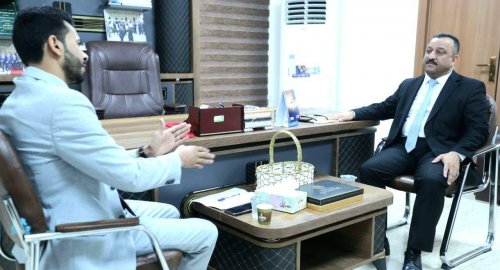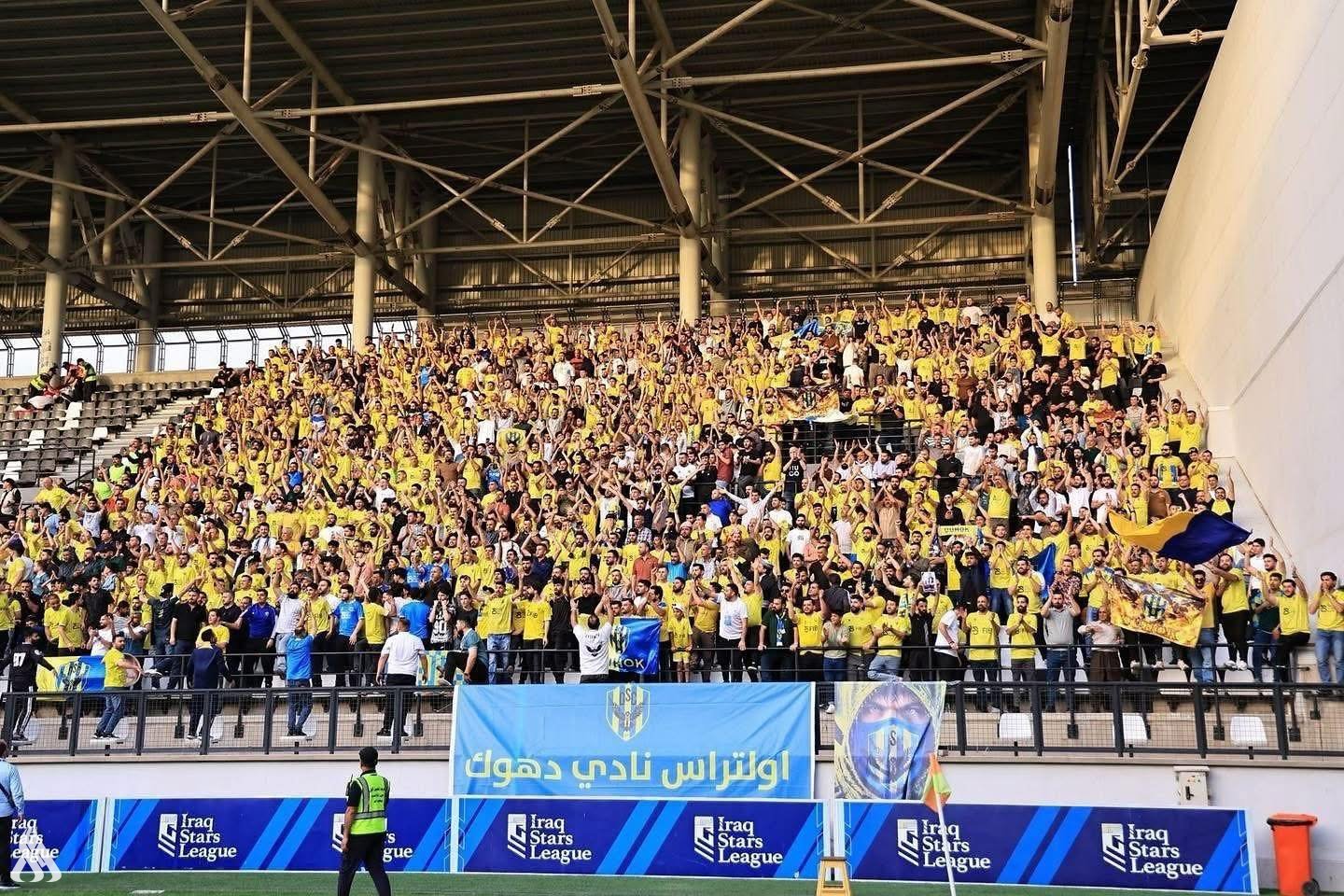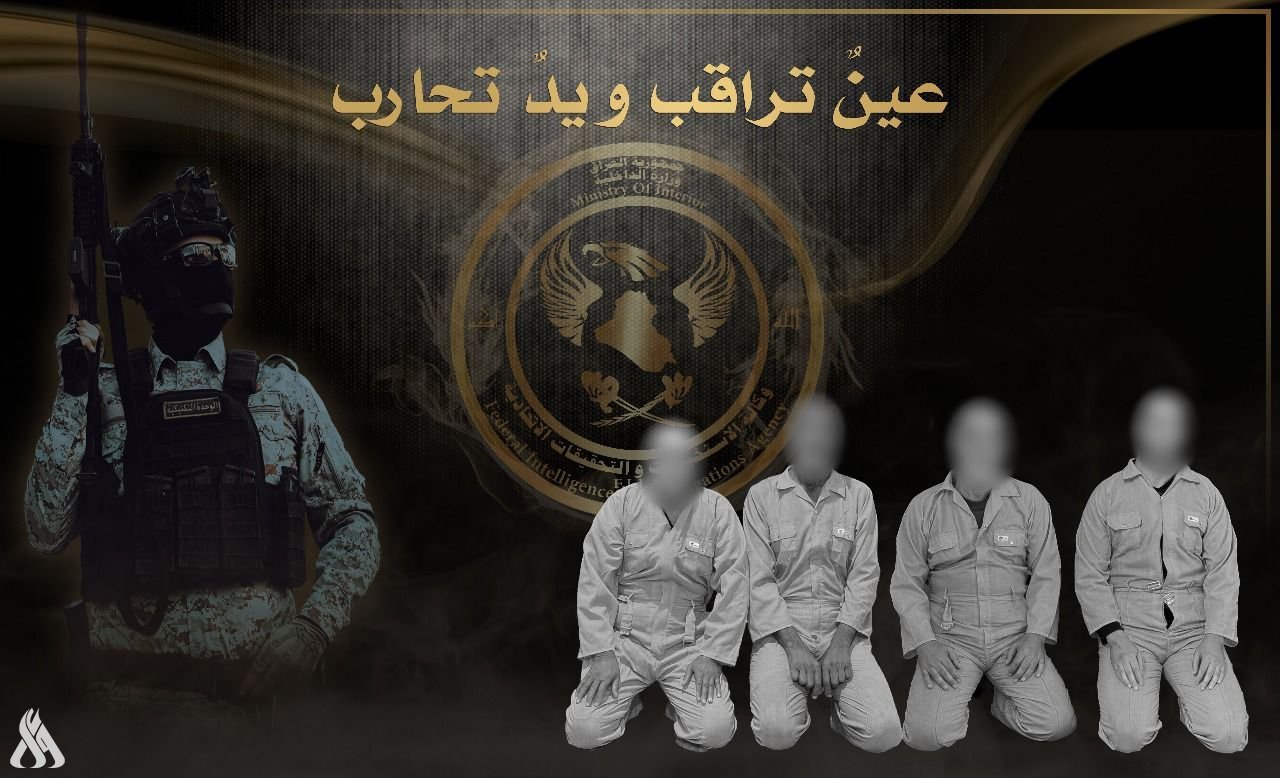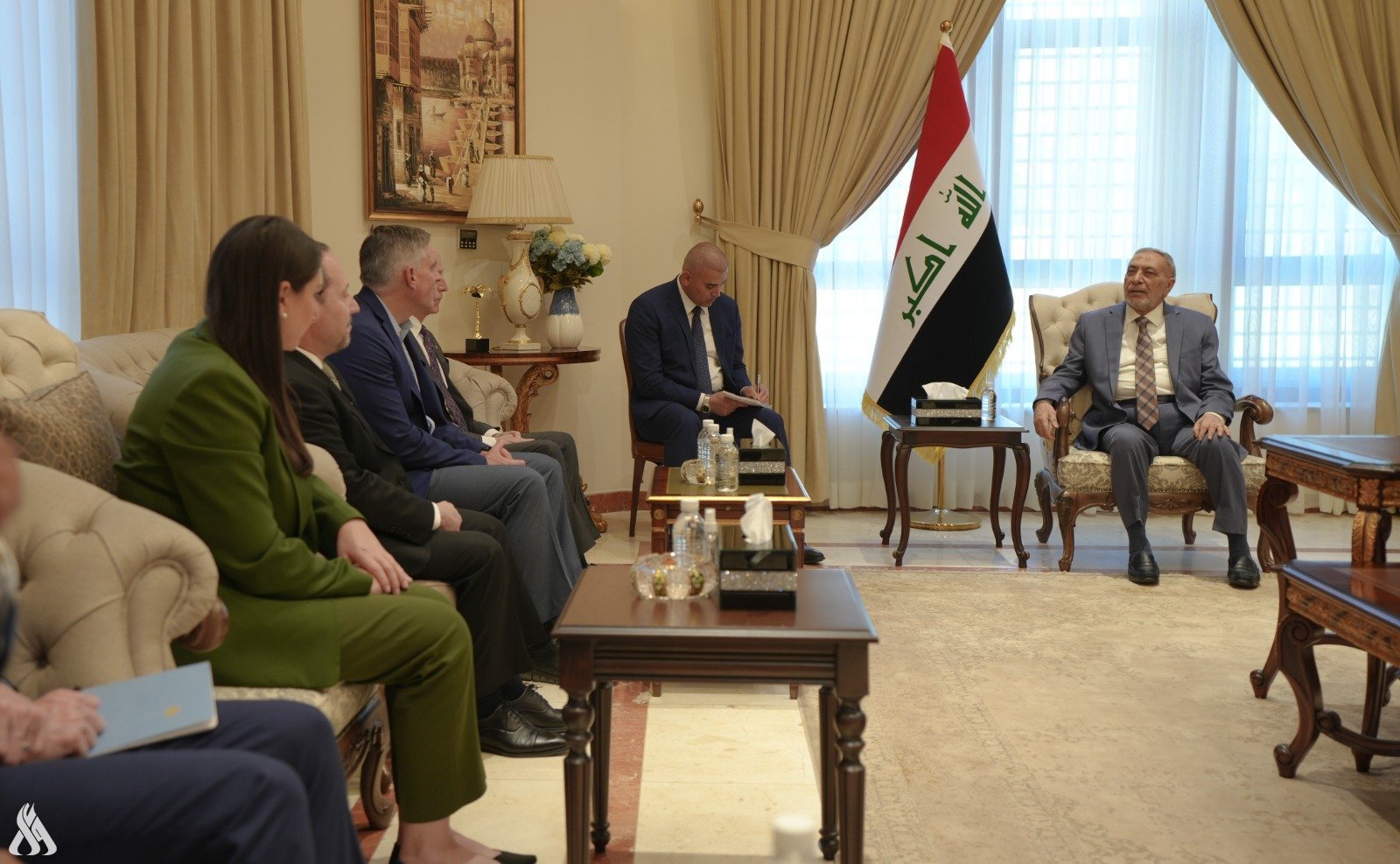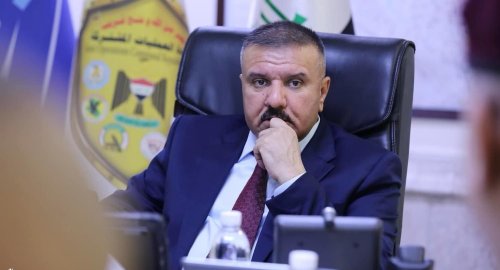
Interior Minister: Iraq is free of drug factories and we have taken measures to secure the borders

- 27-09-2024, 13:55
Baghdad-INA
Interior Minister Abdul Amir Al-Shammari announced the foiling of drug smuggling operations across the borders and the arrest of international networks, while indicating that Iraq is free of drug factories. He confirmed that measures have been taken to secure the borders and prevent the infiltration of terrorists and drug dealers.
Al-Shammari said in an interview with the Iraqi News Agency (INA): "At the beginning of the formation of the government, the Directorate of Narcotics and Psychotropic Substances Affairs was linked to the Police Affairs Agency, as its work was police-related, and it dealt with the issue of arresting users and dealers with a police case. There was no intelligence tracking and parallel investigation, i.e. confiscating the movable and immovable funds of drug dealers, and there was no tracking of international trade gangs, and there was no international regional cooperation and coordination between Iraq and neighboring countries, which Iraq is considered a passage for smuggling to various parties."
He added that: "When the government was formed and under the direction of Prime Minister Mohammed Shia al-Sudani, we resolved to address the drug control file as an important file and no less important than the issue of combating terrorism," indicating that "there was a decision to separate this directorate from the Police Agency and make it initially linked to the Intelligence Agency, and then linked to the Minister of Interior."
Reducing narcotics
Al-Shammari continued: "After its connection, the work focused on reducing the supply of narcotics, and we have indications of an increase in the prices of this substance, and an increase in the number of those arrested," indicating that "reducing the supply is subject to controlling the international borders, and this is what we have worked on strongly since the formation of the government until now, as well as following up on drug trafficking gangs."
He pointed out that "work has been done to control the international borders, as we have with Syria, and we are working to control them because a large part of the Syrian borders is not under the authority of the Syrian government, so we worked to create fortifications and arbitrations with the Syrian borders through a system of obstacles, and there are also control procedures on the Iranian borders," stressing that "these borders are long, and have difficult terrain such as mountainous areas and marshlands and Shatt al-Arab areas, where the borders were controlled at a high level with the follow-up of drug dealers, and there has been an increase in the activities of arresting dealers, smuggling networks and gangs, and this has led to a significant reduction in supply."
Baghdad Conference
He explained that "at the level of international cooperation and coordination, we adopted the first Baghdad Conference, which was held in 2023, which was attended by all the drug agencies in neighboring countries, in addition to Lebanon and Egypt, and with the attendance of the General Secretariat of the Council of Arab Interior Ministers, as well as the International Mission to Combat Narcotics. After that, Jordan hosted a quadripartite meeting for the countries of Iraq, Jordan, Syria and Lebanon," stressing that "this year, the second conference was held, which was the most important and prominent, as the ministerial conference of the interior ministers of neighboring countries, in addition to Lebanon and Egypt, was held under the auspices of the Prime Minister. The conference was a great success, and we agreed on several recommendations, including the exchange of information, coordination and facilitation of the extradition of the observer between these countries, as well as the arrest of those wanted by these countries through communication and connection with these countries."
Al-Shammari pointed out that "the conference was successful," indicating that "in the stage of reducing demand, we sought to open forced clinics and rehabilitation centers for addicts who are arrested, and they are placed in accordance with Article 32."
He explained that "these addicts may be sentenced to one year, and previously they were placed in police stations and detention centers with criminals, while now we have started to include them in these clinics, and a large number of them have been rehabilitated, and after the rehabilitation process they are being followed up and entered into the database as victims of drug trafficking."
He pointed out that "so far, approximately 16 clinics have been opened, distributed across the governorates, in cooperation with the Ministry of Health, where doctors, counselors, psychological researchers and social researchers have been provided, and addicts are being treated in them," adding: "We also followed up on the investigation of the trafficking networks, and for the first time, more than 100 drug dealers have been sentenced to death this year alone, according to Article 27, which pertains to international trade, in addition to the presence of thousands of local traffickers according to Article 28, and their sentences range from life imprisonment to 15 years in prison, and there are different sentences."
He explained that "this contributed greatly to controlling this file, but the battle is still open and long with drug dealers because this trade generates huge profits," stressing that "we provided full support to the Drug Affairs Directorate, which is supported by the Intelligence Agency, the Medical Services Directorate, the Relations and Media Department, and all the departments of the ministry were dedicated to supporting the Drug Affairs and Psychotropic Substances Directorate. At the same time, there is support from the Council of Ministers and the Prime Minister, and there is an allocation of one billion dinars per month that was approved by the Council of Ministers."
Support for the Anti-Narcotics Directorate
He reiterated that "there is financial and moral support for the Anti-Narcotics Directorate", noting that "two weeks ago we submitted the first amendment to Law No. 50 to combat drugs, and it included some amendments aimed at closing the gaps in the current law".
Al-Shammari explained that "previously there were some gaps in the tables, as there are 10 tables attached to the law, so there was manipulation and corruption by turning stores into users, and this issue was almost completely closed by the amendment, and there is also a tightening of penalties in this amendment, and we hope that the House of Representatives will approve it as soon as possible".
He continued that "this year witnessed the arrest of prominent dealers hiding in neighboring countries, in cooperation and coordination with neighboring countries, where they were arrested and handed over to Iraq, and this is considered a qualitative development, as for the first time there is understanding and openness to neighboring countries", stressing that "everyone agrees that drugs are a crime and a scourge, and must be eliminated".”
He pointed out that "a drug factory was seized in Sulaymaniyah that was manufacturing Captagon, and there was an intention to establish a factory in Muthanna Governorate that was seized before it was established currently, there is no manufacturing in Iraq, but rather just attempts, and they are being controlled."
Border Control File
Regarding the border file, the minister explained that "the length of the Iraqi border with neighboring countries is more than 3,500 kilometers, of which 620 kilometers are with the Syrian Arab Republic, and we have a long border with the Islamic Republic of Iran of about 1,500 kilometers," stressing that "our border with Syria is more than 95% secured, as a concrete wall has been built and in some areas a system of wire barriers has been installed in addition to a trench, and all borders are monitored by cameras, and major drug smuggling operations have been thwarted."
He continued: "While on the border with the Iranian side, there was a clash last week with two smuggling gangs, the first in Diyala, and the second in Maysan in the Al-Zubaidat area, where the security forces in Diyala were able to kill one of the drug dealers and the other was injured, and he was arrested, and he is currently in the hospital, and he is being investigated," indicating: "As for Maysan, there were 3 smuggling dealers, one of whom was injured, and they were all arrested and are now being investigated."
He continued, "At the same time, we have good procedures in Shatt al-Arab by the Coast Guard Brigade," stressing that "these procedures have enhanced the reduction of drug flow towards the country."
He explained that "in the new amendment, there will be a drug division at the port, and the port will be fully controlled," stressing that "in controlling the borders, we have drones and advanced cameras, and we have become more capable of controlling the borders and coordinating with neighboring countries at a high level through the presence of officers from both sides."
He pointed out that "during the past two years, there has been a qualitative shift in the international borders, and this has been positively reflected on the country's security by preventing the infiltration of terrorists and gangs, and we hope that the work of the borders will develop."
Security agreements
Regarding the security agreement with Iran, Al-Shammari stated that "we have a security agreement with Iran, where an agreement was made to evacuate the headquarters of the Iranian opposition groups from the border and evacuate them and transfer them to other locations in coordination with the regional government and in the presence of the commander of the border forces, the national security advisor and the regional interior minister," indicating that "these locations were controlled by the border forces command and for the first time these areas were held, which greatly enhanced border security, but we still have some loopholes within the Third Brigade sector, the first region in Sulaymaniyah."
Regarding controlling the border with Turkey, he indicated that "there is a committee to coordinate with the Turkish side, and there is a plan to control the border strip, and financial allocations were provided to build police stations, as more than 30 police stations were built on the border strip within the First Brigade sector, the First Region Command and the Second Brigade, and we are continuing to do so."
National Card
Regarding the national card, the minister pointed out that "the national card file was lagging at the beginning of the formation of the government, as in November 2022 the number of people registered on the national card was 27 million, of whom only 22 million received a national card and 5 million did not receive the card," stressing that "our procedures were quick a technical contract was signed with the German company that established this system, followed by an expansion contract."
He explained that "during the past two years, we were able to register about 40 million and 500 thousand, and all of this number received the card, because a factory was established to print the national card by the company in Baghdad," stressing that "about 4 months ago, we opened a factory to manufacture and print the national card in Baghdad, and we do not have any problem in issuing the national card."
Duhok of Iraq and Qadsia of Kuwait match kicks off
- Sport
- 25/04/15
Four Daesh terrorists detained in Salahuddin
- Security
- 25/04/14
Two ISIS hideouts destroyed, killing those inside in Salah al-Din
- Security
- 25/04/13
